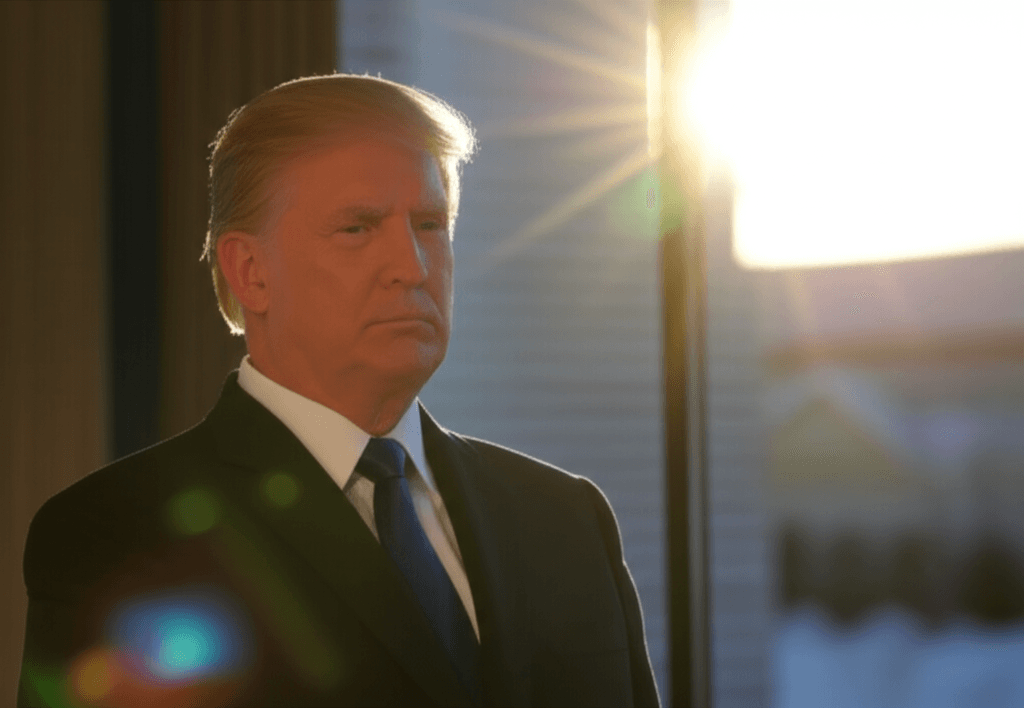Donald Trump’s frequently bizarre public appearances, marked by claims such as his uncle knowing the Unabomber and unprompted rants about windmills during a recent UK trip, have once again raised questions about his mental acuity, according to experts. For over a year, the 79-year-old former president has exhibited unusual behavior in various public settings, including campaign events, interviews, spontaneous remarks, and press conferences. These instances have led to renewed scrutiny of his cognitive fitness, particularly after similar concerns significantly impacted Joe Biden’s 2024 re-election campaign.

A Pattern of Disjointed Communication
Observers have noted a pattern in Trump’s recent public statements that suggests difficulty in maintaining a coherent train of thought.
Rambling and Off-Topic Digressions
Trump has repeatedly drifted off topic during speeches and meetings. For instance, during a cabinet meeting, he reportedly spent 15 minutes discussing decorating instead of the scheduled agenda, which included critical issues like the war in Ukraine, the bombing of Iran, and global tariffs. Another instance involved a 13-minute monologue about decorating the cabinet meeting room, focusing on frames and china he had personally selected. His campaign speeches have also been described as rambling, a technique he has referred to as “the weave.”
Incoherent Statements and Misremembered Facts
Examples of Trump’s increasingly strange behavior include misremembering simple facts about his government and life. He incorrectly claimed his uncle, John Trump, a late professor, had taught Ted Kaczynski, the Unabomber, at MIT, a story that experts deem to make “no sense whatsoever.” During discussions about the famine in Gaza, Trump appeared unable to recall the aid provided by the US, wrongly stating the US gave $60 million “two weeks ago” and that no other country contributed.
Difficulty Completing Thoughts
Experts, including psychologists and lecturers, have noted that Trump appears to have trouble completing a thought, a significant change from his more articulate speaking style in the 1980s. Harry Segal, a senior lecturer at Cornell University, described Trump’s abrupt changes in conversation as “digressing without thinking – he’ll just switch topics without self-regulation, without having a coherent narrative.” Clinical psychologist Dr. Ben Michaelis has observed that Trump’s rambling speeches, where he veers between unrelated topics, resemble “logorrhoea,” or excessive talking, which can be associated with dementia.

Cognitive Assessments and Expert Opinions
While Trump has consistently dismissed questions about his mental acuity, describing himself as a “stable genius” and touting “acing” simple cognitive tests, concerns from mental health experts and political figures persist.
Medical Reports and Counter-Arguments
In April, Trump’s White House physician, Dr. Sean Barbabella, stated that the president “exhibits excellent cognitive and physical health and is fully fit to execute the duties of the commander-in-chief and head of state.” However, this report has not quelled the ongoing questions. John Gartner, a psychologist and author who was an assistant professor of psychiatry at Johns Hopkins University Medical School for 28 years, suggested in June that Trump exhibits “classic signs of dementia, which is gross deterioration from someone’s baseline and function.”
Broader Concerns from Academics and Politicians
Beyond specific incidents, a detailed study of Trump’s speech patterns found an increase in “confused word order, and repetition, alongside extended digressions” when compared to his speeches from 2017. These changes, while potentially having various causes, have raised worries among experts. Democrats, including Representative Jasmine Crockett and California Governor Gavin Newsom, have become more aggressive in questioning Trump’s fitness for office. Harry Segal also noted an “alarming” increase in the rate of Trump’s bizarre speech and political decisions. He pointed to instances such as an incoherent answer about childcare and a rally where Trump “got cognitively lost” discussing “eight circles” of journalists.

Public Perception and Political Implications
The recurring theme of Trump’s mental fitness has become a political talking point, particularly in the context of previous scrutiny faced by President Biden.
Comparison to Biden’s Scrutiny
During his presidency, Joe Biden faced intense speculation regarding his mental acuity, with his “disastrous debate performance” in June 2024, where he struggled to maintain a train of thought, eventually leading to his decision not to seek re-election. Despite similar patterns of confusion and unusual behavior, Trump has largely avoided the same level of examination until recently.
Growing Public and Political Concern
Polling data indicates a modest but steady erosion in public perception of Trump’s mental sharpness. Reuters/Ipsos polling showed a decline from 53% believing Trump was “mentally sharp and able to deal with challenges” in July 2023 to 46% agreeing in October 2024. Pew Research Center polling also found a drop in those calling Trump “mentally sharp” from 58% in July to 52% in September. These concerns have prompted Vice President Kamala Harris’s campaign to highlight Trump’s public appearances, with Harris calling him “unstable and unhinged.”







